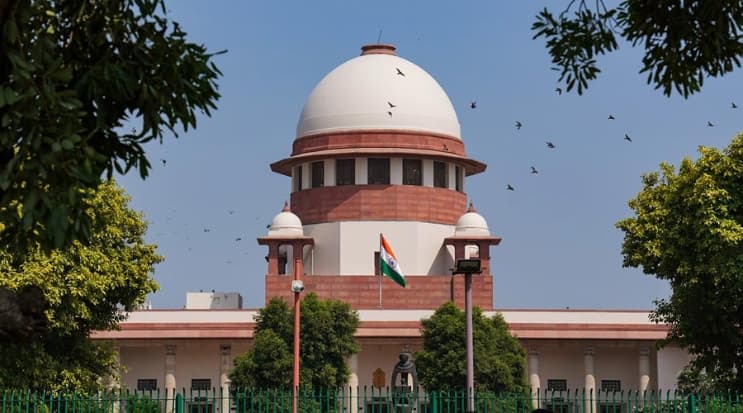
India’s Supreme Court Considers Interim Order on Waqf Amendment Act: Key Provisions Under Scrutiny
Supreme Court raises concerns over the inclusion of non-Muslims in Waqf Boards and the de-notification of Waqf properties, signalling a potential interim stay.
India's Supreme Court has signalled the possibility of passing an interim order to stay certain provisions of the recently enacted Waqf (Amendment) Act, 2025, a move that could dramatically impact the governance and management of Waqf properties in India. On April 16, 2025, the court raised significant concerns regarding the inclusion of non-Muslims on the Central Waqf Council and Waqf Boards, as well as the provision that allows collectors to decide disputes related to Waqf properties.
A three-judge bench, led by Chief Justice of India (CJI) Sanjiv Khanna, is examining petitions challenging the constitutional validity of the Waqf (Amendment) Act, 2025, with the next hearing scheduled for April 17, 2025.
Key Issues and Legal Implications
The bench has indicated that it may stay critical provisions of the law, particularly the de-notification of properties declared as Waqf by courts. It also expressed concerns about the Waqf-by-user provisions, under which certain properties have been traditionally regarded as Waqf without formal registration.
The court’s primary concern revolves around whether properties that have been Waqf by user for hundreds of years can suddenly be de-notified under the new amendment, without clear documentation. CJI Khanna questioned the feasibility of requiring Waqf-by-user properties, many of which are centuries old, to produce formal registration deeds, arguing that many such properties may lack official records, especially before British rule.
Non-Muslim Participation in Waqf Governance
Another contentious provision under scrutiny is the amendment that allows non-Muslims to serve on Waqf Boards and Councils. The bench noted that such provisions could undermine the integrity of the Waqf system, which is rooted in Islamic law. Justice Viswanathan remarked that, much like Hindu Charitable Endowments, it would be inappropriate for non-Muslims to hold positions in the governance of Waqf properties.
Solicitor General Tushar Mehta, representing the Centre, defended the provisions, arguing that the law was passed following an extensive consultation process and an elaborate exercise by the Joint Parliamentary Committee (JPC).
The Waqf (Amendment) Act, 2025: Background and Changes
The Waqf (Amendment) Act, 2025, which received presidential assent on April 5, 2025, was introduced to bring about reforms in the governance of Waqf properties. These properties, often endowed for religious, educational, or charitable purposes, are managed by Waqf Boards, which are now empowered under the amendment to exercise greater control over such assets.
Key provisions of the amendment include:
-
Non-Muslim Members on Waqf Boards: The Act permits non-Muslims to sit on Waqf Boards, despite objections that this goes against the historical governance model that aligns with Islamic principles.
-
Powers of Collectors: The amendment grants Collectors the authority to adjudicate disputes regarding Waqf properties, raising concerns about conflicts of interest and whether a government officer should act as both judge and administrator.
-
De-notification of Properties: The amendment allows for the de-notification of properties previously designated as Waqf, leading to fears that this could undermine properties that have been in use for centuries as part of the Waqf system.
Next Steps and Court Proceedings
The court has expressed its intention to issue an interim order that could provide a temporary stay on certain provisions of the Waqf Amendment Act. This would ensure that properties declared as Waqf by courts will not be de-notified, and disputes over Waqf properties will not be governed by the amended provisions until further proceedings.
The issue has sparked widespread debate, with lawmakers, legal experts, and religious leaders weighing in on the balance between legal reforms and faith-based governance of Waqf properties.
Conclusion
As the Supreme Court prepares to deliberate further, the fate of the Waqf (Amendment) Act, 2025 remains uncertain. The outcome of this case will likely set a precedent for how Waqf properties are managed and governed in the future, particularly in terms of religious representation and legal control.
For any enquiries or information, contact info@thelawreporters.com or call us on +971 52 644 3004. Follow The Law Reporters on WhatsApp Channels